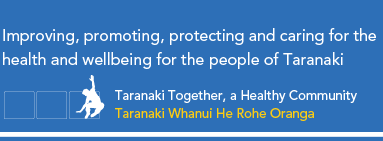Flu shots race towards million mark
www.fightflu.co.nz

29 May 2012
New Zealanders are taking up flu vaccination in droves this year. The number of doses distributed so far this year in New Zealand has just passed the 910,000 mark.
“The previous record high was in 2010 at the time of the swine flu pandemic when we distributed over a million doses in the season. So, if this trend continues we may match that,” says National Influenza Specialist Group (NISG)1 spokesperson and virus expert Dr Lance Jennings.
Dr Jennings says it’s important that as many people as possible are vaccinated to protect themselves and especially those at serious risk of complications from influenza – the very young, the elderly, pregnant women and those with ongoing medical conditions.
“We know some people put off vaccination until mid-winter. But my advice to them is, ‘don’t’. The first seasonal flu cases have already arrived and activity can rise very quickly in winter. It can take up to two weeks to develop immunity from the time of vaccination. So book in with your doctor or nurse today.”
Flu immunisation is free for New Zealanders at high risk of more severe disease and complications – pregnant women, people aged 65 and over, and anyone with ongoing health conditions such as heart disease, strokes, diabetes, respiratory disease (including asthma), kidney disease and most cancers. Canterbury residents also qualify for free vaccination if they are aged between 6 months and 18 years old.
Dr Jennings says there is low flu activity in New Zealand at the moment with sporadic cases of influenza, mostly associated with H3N2 infection being identified. He says a major outbreak of H3N2 would cause a surge in hospital admissions and deaths.
“The good news is, however, that the influenza vaccine offered this year covers three strains currently in circulation in the southern hemisphere.”
It’s estimated more than 400 people die each year in New Zealand because influenza can make other conditions, such as breathing or heart problems, even worse.
Pregnant women are also offered free immunisation as studies have shown they are particularly susceptible to more severe outcomes from flu. Pregnant women are now at the top of the World Health organisation (WHO) at-risk groups.
Additionally, vaccination of pregnant women has been shown to decrease the incidence of influenza in their new-born babies 2,3.
The Royal Australian and New Zealand College of Obstetricians and Gynaecologists recently stated that the safety of flu vaccination during pregnancy is well established and vaccination should be routine.
“The influenza virus is easily spread and anyone, young or old, fit or unwell, can catch it and can get very sick.”
Influenza vaccine is only free for eligible groups from a doctor or nurse until July 31. Vaccine is available to other people for a small charge or provided free by some employers in workplace schemes. Immunisation is available, but not free, for healthy children six months and over and adults.
Influenza immunisation cannot give you the flu because it does not contain live viruses. There can be side effects, and these usually disappear within 1-2 days without treatment.
NISG says that as well as getting a flu vaccination there are other ways you can protect yourself and your family/whanau from flu including:
- Wash and dry your hands often
- Stay away from people who are sick
- Stay away from work or school if you’re unwell
- Cover your coughs and sneezes.
Media contact:
Brenda Saunders
021 777 171 or 09 536 6753.
Last updated: Wednesday, May 30, 2012



